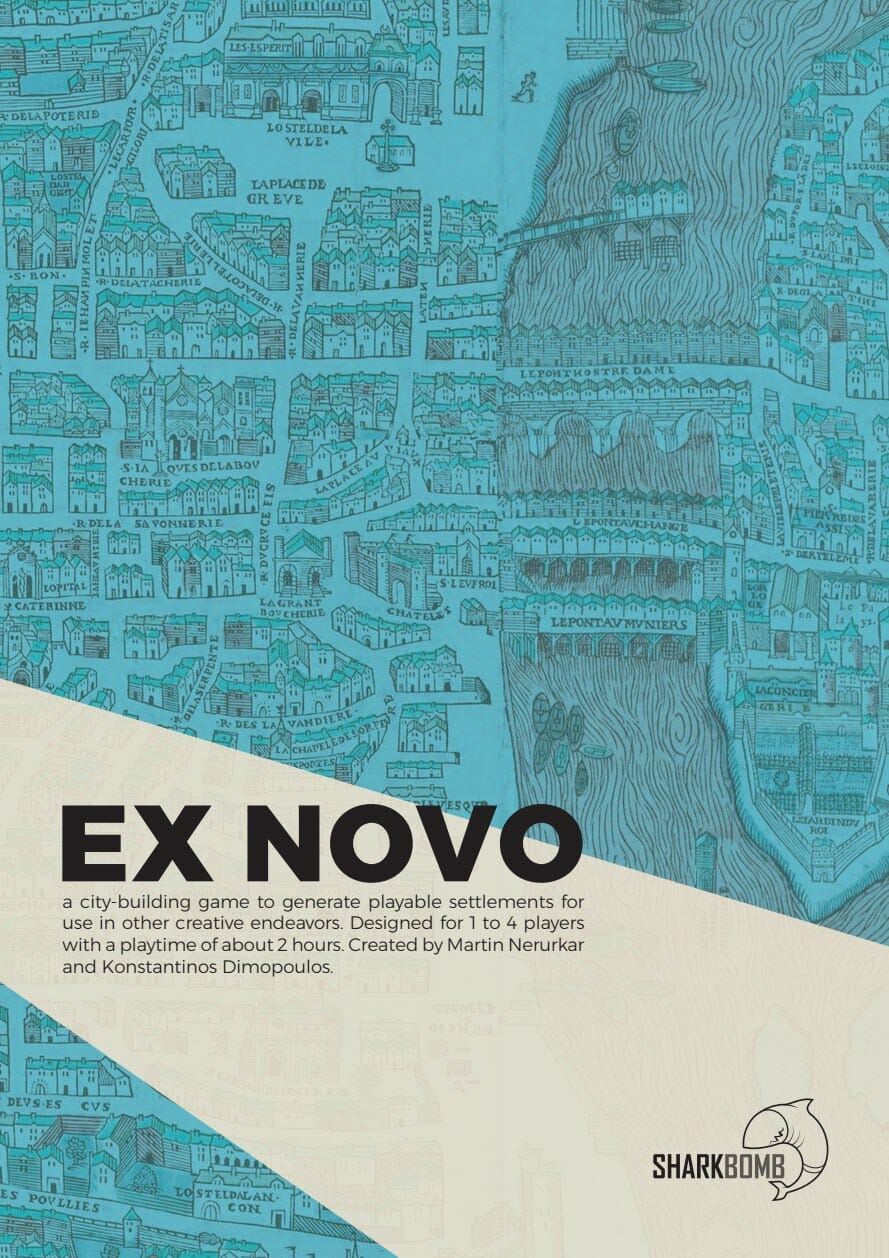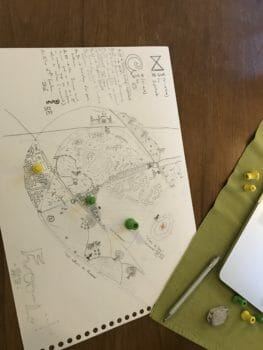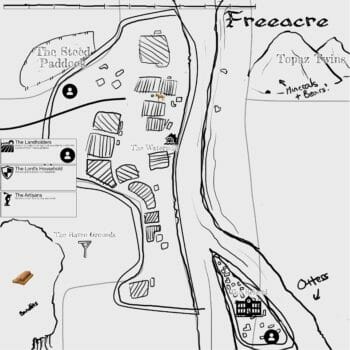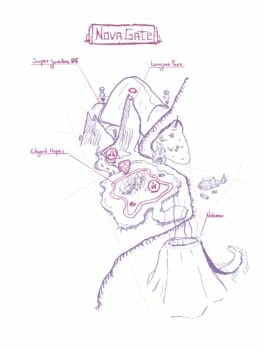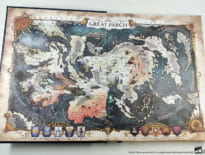Worldbuilding is a term used by authors and gamers alike. It’s the science and art of putting together a setting for a story or game.
I know gamers who have no time for it, either through choice or by schedule, and that’s okay, but Ex Novo may give both reasons to reconsider. If you happen to enjoy worldbuilding as much as I do then Ex Novo will be a welcome new addition to your collection of techniques.
Ex Novo is a settlement building game from Martin Nerurkar and Konstantionos Dimopoulos. You can play it by yourself or with up to three others.
In Ex Novo you and any friends involved are Guardian Spirits who shape and witness the foundation and then growth of a village.
This is not an abstract game and involves sketching the village as things change; chiefly as it grows. You draw areas, add features and establish the topography of the location. Symbols are used to denote some aspects of your fantasy village or city.
I think one of the strengths of Ex Novo is that it gives you a system to follow and stick with. If you start using the system now and stick with it for 5 years, then every settlement you create will be consistent. If your gaming group all use the system, then you can collectively build worlds together using a universal legend.
You’ll have seen the gotcha already. If you’re not a fantastic cartographer then while Ex Novo can help by suggesting some best practice ideas, it can’t give you a steady hand, an eye for detail and a sense of what looks good or not.
I’m useless. Of my many failings, my inability “to art” is the one I regret the most (tied with my failure to win the lotto). I wasn’t happy with my first Ex Novo creation, but it wasn’t the system’s fault; it was mine. I’ve created ten or so villages now, and they’re much better, but you wouldn’t want me contributing to your map if you can draw and want to produce something that looks good.
Ex Novo’s fantasy building system
A session of Ex Novo starts with a discussion phase.
In this opening phase, everyone taking part in the city building project set out initial guidelines and expectations.
For example, if you need a village for your campaign, then this is when you say so to stop someone trying to make a city.

The role of the Guardian Spirits comes into the fore in the next stage, the founding phase. It’s here were players define some of the basics of the fledgeling settlement and terrain.
For example, if you’re founding a fishing village, then that purpose is set here along with a source of fish such as a coast, river or lake. For me, the catch is always that whoever sets a feature has to draw it.
Ex Novo provides the structure for the founding phrase, giving you a predefined number of turns, with players going one after another to establish the community.
In the next phase, the settlement develops. Once again, players take turns to use the Ex Novo rules to find out what exciting thing happened in the settlement’s past and how that affected the evolution of the place.
A truism that Ex Novo never forgets is that it is the people that make a place. Things that happen to the city aren’t just physical things but often people based things like politics, economy, wars and culture.

As usual, changes are denoted on the developing map.
The last phase is all about topping out the details. A few quick final turns are used to tie off loose ends, make sure the settlement is logically consistent and interesting.
Examples of Ex Novo generated settlements
The Ex Novo comments section includes plenty examples of fantasy cities and villages generated by the system. Creators have used pen and paper as well as digital to doodle their settlements.
Overall
There’s a lovely sense of satisfaction about founding a village with friends.
Ex Novo worked best for me when we were about to play a cooperative story focused fantasy game. We had planned on rotating GMs to avoid that dread “forever DM” syndrome. With shared GMing responsibilities agreed, shared worldbuilding responsibilities made sense. It was a delight.
Ex Novo didn’t work so well for me when I wanted to create my own city. I didn’t want (or need) to share, and I already had a firm idea of what I wanted the city to be like. I admit, though, that’s an example of when Ex Novo probably isn’t needed in the first place.
Overall? Recommended for gaming groups happy to coordinate and collaborate, for authors working on a project together and for the curious.
My copy of Ex Novo was provided for review. I’m glad it was, as I might not have checked it out otherwise.
